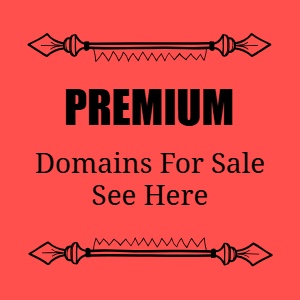
In today's digital landscape, you've likely encountered the concept of domain leasing, a strategic option for businesses seeking to enhance their online presence without hefty investments. Understanding how this process works can greatly influence your brand's strategy. By leasing a domain, you gain access to valuable web real estate, but maneuvering the terms and options available is essential. What factors should you consider before making this decision, and how can you optimize your leased domain for success?
Key Takeaways
- Domain leasing allows businesses to utilize domain names without outright ownership, providing flexibility and lower costs.
- The process involves identifying a domain, contacting the owner, and negotiating lease terms tailored to business needs.
- Key considerations include domain valuation, lease duration, and any usage restrictions imposed by the agreement.
- Leasing provides immediate credibility and visibility, enabling businesses to test their market presence without significant financial commitment.
- Continuous assessment and strategic management are crucial for maximizing the value and performance of leased domains.
What Is Domain Leasing?

When you consider the evolving digital landscape, territory leasing emerges as a strategic option for businesses looking to strengthen their online presence without the hefty upfront costs of outright purchasing a domain. Fundamentally, domain leasing enables you to use a domain name for a specified period while the actual ownership remains with the leaseholder. This arrangement offers flexibility in leasing terms, tailored to your business needs and budget. Leasing can also provide access to premium domain names that might be unaffordable for outright purchase. This approach allows you to enhance your brand visibility and online marketing efforts without the long-term commitment of domain ownership. It's a pragmatic choice that balances cost with strategic growth opportunities in the digital territory. Similar to how domain auction platforms revolutionized buying and selling practices, leasing has become another vital option in the digital real estate market.
The Process of Leasing a Domain
Although leasing a domain can seem challenging, the process is quite straightforward and manageable. First, you'll need to identify a domain name that meets your needs. Once you find a suitable domain, reach out to the current owner or leasing agent to discuss availability. You'll then negotiate the terms of the lease agreement, including duration and payment structure. It's essential to clarify domain rights within this agreement, ensuring you understand what you can and can't do with the domain during the lease period. After both parties agree on the terms, you'll sign the lease agreement, finalize any payment arrangements, and update the domain registration details to reflect your leasing status. That's it! You're now ready to use the leased domain. Whether you choose a generic domain name or a country-specific one, understanding the different types of TLDs will help you make an informed leasing decision.
Benefits of Domain Leasing

Leasing a domain brings several significant advantages that can enhance your online presence. First, it offers cost efficiency, allowing you to invest less upfront compared to purchasing a domain outright. This means you can allocate your budget to other essential areas of your business, like marketing or website development. Additionally, leasing often comes with flexible terms, enabling you to adjust your agreement based on your needs. Whether you want to test the waters with a specific domain or plan for future growth, these flexible arrangements let you avoid long-term commitments. Unlike new domains that require extensive SEO optimization efforts, leasing an established domain can provide immediate visibility and credibility benefits. Overall, domain leasing is a practical option that allows for experimentation and adaptability, making it an appealing choice for anyone looking to establish or expand their digital footprint.
Factors to Consider When Leasing a Domain
While the benefits of domain leasing are appealing, several factors warrant careful consideration before making a commitment. First, you should assess the domain valuation; understanding the market value helps you negotiate a fair lease price. Consider the potential for appreciation based on trends in your industry. Next, think about the lease duration. A longer lease might secure stability, but it could tie you down financially if your needs change. Evaluate whether you'll be able to renew easily or if a buyout option is available. Finally, consider any restrictions the lease might impose on your branding or use, as these can greatly impact your strategy. Weighing these factors carefully will help you make an informed decision. It's essential to verify the domain's legitimacy by checking WHOIS information to confirm ownership details and registration history.
How to Find Available Domains for Lease

To find available domains for lease, start by utilizing domain marketplaces and specialized leasing platforms, which often list a wide range of options. Conduct a thorough domain search using relevant keywords related to your business or niche. This targeted approach helps you discover domains that are not just available but also align with your brand identity. Additionally, perform keyword analysis to identify trending terms that potential customers might search for. By focusing on keywords with high search volume, you increase your chances of leasing a domain that enhances your visibility online. Moreover, consider reaching out directly to domain owners or brokers for unlisted opportunities, as many domains are available for lease but may not be actively advertised. Understanding DNS resolution speeds is crucial when evaluating potential domain leases, as slower resolution times can negatively impact your website's performance and user experience.
Comparing Domain Leasing to Buying
When weighing your options for acquiring an online presence, it's important to understand the differences between leasing and buying a domain. Leasing offers flexibility and lower upfront costs, making it an attractive option for those cautious about large domain investments. You can test market responsiveness without committing significant capital, thereby allowing you to implement various pricing strategies. On the other hand, buying secures long-term ownership and potentially enhances your brand's credibility. However, this approach usually involves higher costs upfront and the ongoing responsibility of maintenance. Ultimately, your choice depends on your budget, business model, and growth goals. Consider how long you plan to use the domain to determine which method aligns best with your strategic vision.
Domain Leasing and SEO Considerations

Understanding how domain leasing impacts your SEO strategy is important if you're considering this approach for your online presence. Leasing a domain can offer significant advantages but also comes with unique challenges. When developing your SEO strategies, it's necessary to guarantee the leased domain has a clean history and relevant backlinks to enhance your search visibility. Poor past performance could diminish your efforts. Additionally, effective keyword optimization is significant; target keywords should align with the domain's existing brand and content. This alignment can improve user experience and engagement, ultimately boosting your search rankings. Regularly monitor the domain's SEO performance during the lease period to identify areas for improvement and adjust your approach as necessary, maintaining your competitive edge.
Making the Most of Your Leased Domain
Leasing a domain can boost your online presence, but maximizing its potential requires a strategic approach. Focus on branding strategies that resonate with your target audience. Create a professional website that reflects your brand identity, using high-quality content and engaging visuals. Optimize your site for search engines to improve visibility and maximize traffic. Utilize social media platforms to promote your leased domain, driving visitors and building an online community. Monitor analytics regularly to understand user behavior and adjust your strategies accordingly. Collaborate with influencers to expand your reach and enhance credibility. By implementing these tactics, you can guarantee that your leased domain not only serves its purpose but also evolves into a valuable asset for your business over time.
Frequently Asked Questions
Can I Lease a Domain Indefinitely?
You can't lease a domain indefinitely. Lease duration typically varies, and you'll need to renew your lease periodically. Long-term leasing may provide stability, but ownership often remains with the original registrant, limiting your control.
What Happens if My Leased Domain Expires?
If your leased domain expires, you risk losing domain ownership. You should initiate the renewal process immediately to retain your rights; otherwise, the domain might become available to others, jeopardizing your online presence.
Are There Tax Implications for Leased Domains?
Leased domains can be as tangled as a spider's web when it comes to tax implications. You must consider potential tax deductions and guarantee accurate income reporting to avoid unpleasant surprises come tax season.
Can I Sub-Lease a Domain to Someone Else?
You can sub-lease a domain if your lease agreement allows it. Always check your terms to guarantee you're not violating contract clauses, as domain ownership typically restricts sub-leasing unless explicitly permitted by the primary agreement.
How Do Lease Agreements Differ Between Domains?
Think of lease agreements as unique fingerprints. They differ primarily in domain duration and lease options, with varying lengths and terms tailored to specific needs, meaning each agreement serves different purposes depending on the parties involved.
See The Next Blog Post
To sum up, domain leasing offers an innovative way to enhance your online presence without the hefty price tag of buying a premium domain. With around 50% of small businesses struggling to find the right domain, leasing can be a game-changer. It not only provides flexibility but also opens doors to strategic growth. By leveraging a leased domain, you can position your business for success, tapping into the credibility and visibility that come with a well-chosen online identity.














